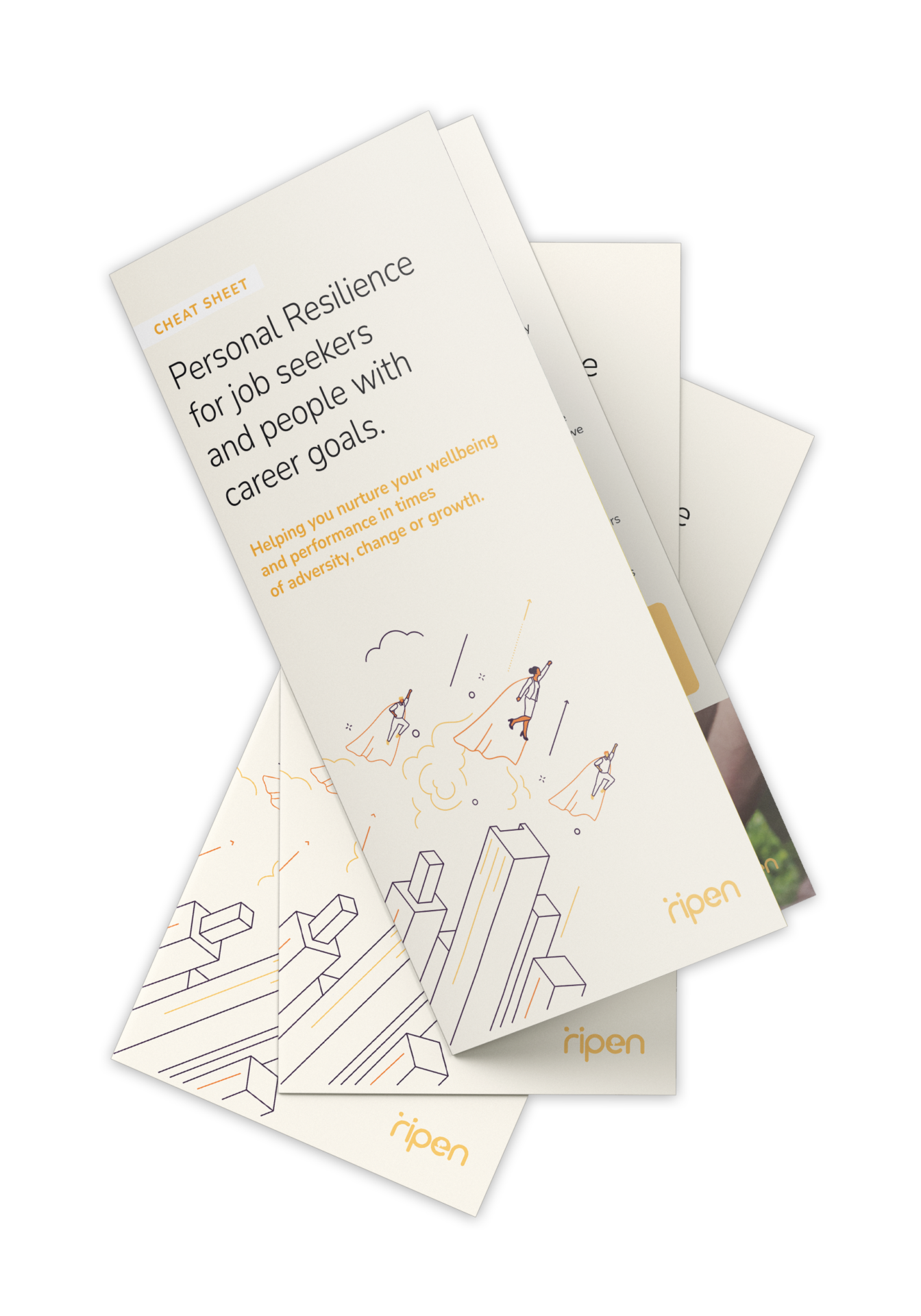Let’s say you applied and interviewed for your dream job, but you didn’t get it. Damn! The first step for getting perspective requires your self-awareness to identify all the thoughts, emotions, beliefs and reactions you are experiencing in this situation. A PLOM would likely identify the following:
- I’m not skilled enough for this type of job = Feeling less confident in my own abilities.
- I must have messed up the interview somehow = Feeling pessimistic about my future prospects.
- There’s no other jobs currently available and so I’m stuck = Feeling helpless.
To avoid being a PLOM, instead of focusing your perspective on what you have no power to change, you can ask yourself this question:
‘For the challenge/s I’m facing, what can I steer, sway or forget?’.
Steer perspective – applying this perspective you look at the situation and identify the reactions and outcomes that you have the direct power to steer in a way that is more beneficial for you. For example, instead of feeling less confident by telling yourself ‘I’m not skilled enough for this type of job’ – in the steer perspective you would acknowledge that you do have the power to steer your skills so that you are skilled enough for future job opportunities. You take action to complete a training course to up-skill yourself, read a book to increase your subject knowledge, or get volunteer experience in the areas you need or currently lacking etc.
Sway perspective – applying this perspective you look at the situation and identify the reactions and outcomes that you may not have the direct power to steer but you do have the indirect power to sway in a way that is more beneficial to you. For example, feeling pessimistic about your future prospects by telling yourself ‘I must have messed up the job interview somehow’ – in the sway perspective you realise your power to be able to sway your outcomes in future job interviews. You take action to seek feedback from interviewers following each job interview, research interview tips and tricks online, and even get practice and experience doing mock job interviews with mentors, colleagues or through training courses.
Forget perspective – applying this perspective you look at the situation and identify the reactions and outcomes that you can’t do anything about, and you find ways to focus your mental energy away from these. For example, instead of feeling helpless by telling yourself ‘there’s no other jobs currently available and so I’m stuck’ (which may well be true at the time) – in the forget perspective you would realise your power to avoid thinking about this and instead focus your energy on the things you can steer or sway. By taking actions to steer or sway your job prospects, when future jobs do become available you will be feeling confident and ready to seize these.
Think of a situation you are facing at the moment that you need to get some perspective on, and apply this effective approach::
Steer – what do I have the power to steer? i.e. what are the reactions and outcomes I’m currently having that I have the direct power (control) to steer in a way that is more beneficial for me. How will I steer these?
Sway – what do I have the power to sway? i.e. what are the reactions and outcomes I’m currently having that I have the indirect power to sway (influence) in a way that is more beneficial for me. How will I sway these?
Forget – what don’t I have the power to steer or sway? i.e. what are the reactions and outcomes I’m currently having that I have no power to change? How will I focus my energy away from these?

